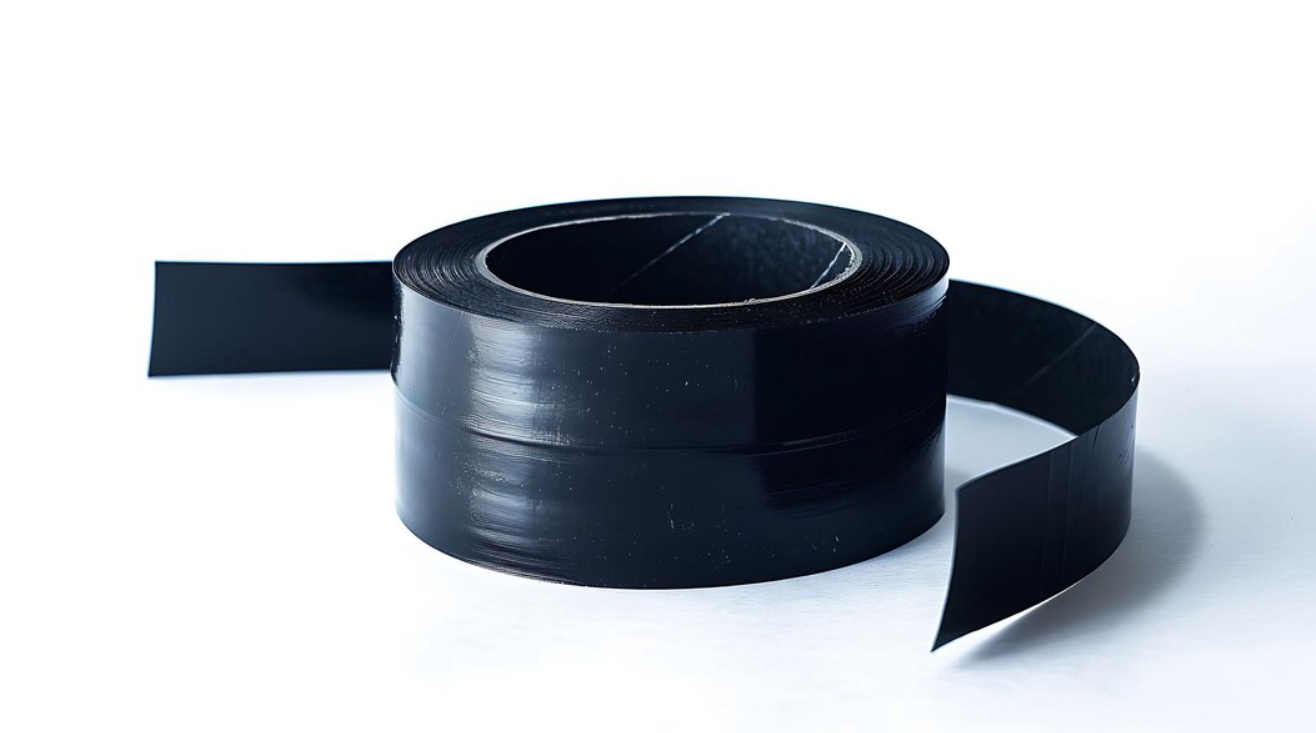Choosing the right tape for a project can be challenging. Vinyl tape and duct tape are two popular options, each with unique features suited for different tasks. Understanding the characteristics of vinyl tape and duct tape is essential for making an informed decision. Vinyl tape offers flexibility, durability, and moisture resistance, making it ideal for various applications. On the other hand, people celebrate duct tape for its strength, versatility, and ability to adhere to many surfaces. Both tapes are valuable, but their specific uses differ significantly.
When selecting between vinyl tape and duct tape, considering the specific requirements of your project is crucial. Factors such as strength, flexibility, weather resistance, and ease of use play a significant role in determining the most suitable tape. This blog aims to explore the key differences between vinyl tape and duct tape, helping you understand their advantages and ideal uses. By gaining insight into their unique properties, you can ensure that your projects are completed efficiently and effectively. The right choice of tape can save time, enhance the quality of work, and provide a more reliable and durable solution for various tasks.
What is Vinyl Tape?
Vinyl tape, essentially, is a type of adhesive tape made from polyvinyl chloride (PVC). Notably, it is known for its flexibility, durability, and resistance to moisture. Moreover, vinyl tape is often used in electrical work due to its insulating properties. Additionally, it can be found in various colours, thus making it ideal for colour-coding wires and cables.
Common Uses for Vinyl Tape
- Electrical Insulation: Vinyl tape is commonly used to insulate electrical wires, preventing short circuits and electrical shocks.
- Colour-Coding: The tape’s availability in different colours allows for easy identification and organization of wires and cables.
- Repair Work: Vinyl tape can be used for minor repairs, such as patching up small tears in hoses or cables.
- Marking and Labeling: It is also useful for marking areas or labelling items, thanks to its bright colours.
Key Features and Benefits of Vinyl Tape
- Flexibility: Vinyl tape is highly flexible, allowing it to conform to irregular shapes and surfaces.
- Durability: It is resistant to abrasion, making it suitable for environments where wear and tear are common.
- Moisture Resistance: Vinyl tape can withstand exposure to moisture, making it ideal for both indoor and outdoor use.
- Electrical Insulation: Its insulating properties make it safe for use in electrical applications.
What is Duct Tape?
Manufacturers make duct tape, a strong yet versatile adhesive tape, from a fabric mesh coated with polyethene resin. Indeed, people know it for its strength and ability to adhere to various surfaces. Consequently, many use duct tape for quick repairs and sealing due to its robust nature.
Common Uses for Duct Tape
- Repair Work: Duct tape is commonly used for repairing broken items, such as pipes, hoses, and even furniture.
- Sealing: It is excellent for sealing boxes, packages, and even gaps in windows and doors.
- Bundling: Duct tape can be used to bundle items together, such as pipes or cables, for easier handling and storage.
- Crafts and DIY Projects: Its strong adhesive makes it useful for various crafts and DIY projects, including creating custom designs and decorations.
Key Features and Benefits of Duct Tape
- Strength: Duct tape is known for its high tensile strength, allowing it to hold heavy items together securely.
- Versatility: It can adhere to many surfaces, including wood, metal, plastic, and fabric.
- Weather Resistance: Duct tape can withstand various weather conditions, making it suitable for outdoor use.
- Ease of Use: It is easy to tear by hand, eliminating the need for scissors or other cutting tools.
Comparing Vinyl Tape and Duct Tape
When deciding between vinyl tape and duct tape, it is important to consider their respective strengths and weaknesses. Both tapes serve specific purposes and excel in different areas.
Strength and Durability
Vinyl tape is durable and resistant to wear, but it does not match the strength of duct tape. Duct tape has a fabric mesh that provides high tensile strength, making it ideal for heavy-duty repairs and tasks.
Versatility and Flexibility
Vinyl tape is more flexible than duct tape, allowing it to conform to various shapes and surfaces. This flexibility makes it ideal for tasks requiring a tight fit, such as electrical insulation. Duct tape, while less flexible, is highly versatile and can adhere to many surfaces, making it suitable for a wide range of applications.
Weather Resistance and Outdoor Use
Both tapes are resistant to moisture, but duct tape generally offers better weather resistance. It can withstand extreme temperatures and harsh outdoor conditions. Vinyl tape, while moisture-resistant, may not perform as well in extreme weather.
Ease of Use and Application
Vinyl tape is easy to work with, thanks to its flexibility and ability to conform to shapes. It is ideal for tasks that require precision and a snug fit. Duct tape, on the other hand, is easy to tear by hand, making it convenient for quick repairs and sealing tasks.
When to Use Vinyl Tape
Vinyl tape shines in specific situations due to its unique properties. Understanding when to use vinyl tape can save time and effort.
Electrical Insulation
Vinyl tape excels in electrical insulation. It prevents electrical shocks and short circuits. Use it to wrap wires and cables for safety.
Colour-Coding
Indeed, its bright colours make vinyl tape perfect for colour-coding. Moreover, organize wires and cables by using different colours. Consequently, this helps in easy identification.
Minor Repairs
For small repairs, vinyl tape is a great choice. Specifically, fix small tears in hoses or cables quickly. Moreover, its flexibility allows it to conform to shapes.
Marking and Labeling
Vinyl tape is also ideal for marking and labelling. Use it to mark areas or label items. Its bright colours ensure visibility.
Flexibility and Durability
Vinyl tape’s flexibility makes it useful in tight spaces. Moreover, it is durable and can withstand wear. Consequently, this makes it suitable for various applications.
Moisture Resistance
Vinyl tape is resistant to moisture. Use it in environments where moisture is present. It works well indoors and outdoors.
Safety Precautions
Always ensure surfaces are clean before applying vinyl tape. This ensures a strong bond. Do not use vinyl tape for heavy-duty repairs.
When to Use Duct Tape
People know duct tape for its strength and versatility. Knowing when to use duct tape can make your projects easier.
Heavy-Duty Repairs
Duct tape is perfect for heavy-duty repairs. Use it to fix broken pipes, hoses, and furniture. Its strength holds items securely.
Sealing Boxes and Packages
Seal boxes and packages with duct tape. It adheres well and provides a strong seal. This prevents items from falling out.
Bundling Items
Bundle items together with duct tape. This is useful for pipes, cables, and other objects. It makes handling and storage easier.
Crafts and DIY Projects
Use duct tape for various crafts and DIY projects. Create custom designs and decorations. Its strong adhesive holds materials together.
Weather Resistance
Duct tape can withstand various weather conditions. Use it outdoors without worry. It handles extreme temperatures and harsh conditions well.
Ease of Use
Duct tape is easy to tear by hand. This makes it convenient for quick repairs. No need for scissors or cutting tools.
Application Tips
Ensure surfaces are clean before applying duct tape. Press firmly to ensure a strong bond. Use multiple layers for added strength.
Conclusion
In summary, choosing the right tape for your project is crucial. Vinyl tape and duct tape have unique features and benefits. Vinyl tape is best for electrical insulation, colour-coding, and minor repairs. Its flexibility and moisture resistance make it versatile. On the other hand, duct tape excels in heavy-duty repairs, sealing, and bundling. Its strength and weather resistance are unmatched.
Consider your specific needs when selecting tape. Use vinyl tape for tasks requiring flexibility and electrical insulation. Opt for duct tape for strong, durable repairs and sealing. By understanding the strengths and weaknesses of each tape, you can make informed decisions. This ensures your projects are completed efficiently and effectively.
Choose the right tape for the job to save time and effort. Whether you need vinyl tape or duct tape, knowing their properties helps. This leads to better results and successful projects.




